Latest Posts
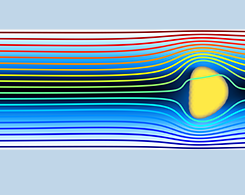
Investigating the Behavior of an Ancient Organism with CFD Simulation
Researchers used CFD simulation to study the behavior of an ancient organism called the Parvancorina in order to learn more about the ecosystem of the Ediacaran period, 635–541 million years ago.

New FEM Book Offers Modeling Guidance for Biomedical Applications
Guest blogger Guigen Zhang of Clemson University discusses his new bioengineering textbook, which focuses on computational modeling for biomedical applications.
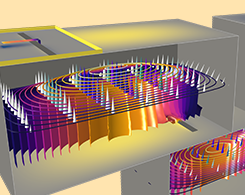
Introduction to Designing Microwave Circuits Using EM Simulation
When it comes to designing RF, microwave, and millimeter-wave circuits with electromagnetics simulation, the key is to start simple and gradually add complexity to your analyses.

Celebrating the Life of Robert Hooke
Robert Hooke was a Renaissance-era scientist who developed a law of elasticity (now called Hooke’s law) and published a well-known textbook on microscopy.
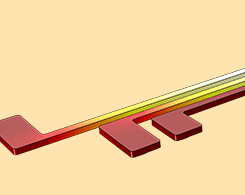
Optimizing the Design of Thermal Actuators for Use in Microsatellites
Microsatellites are replacing traditional large satellites in aerospace missions for gathering scientific data. Using simulation, we can optimize an important component of these devices.
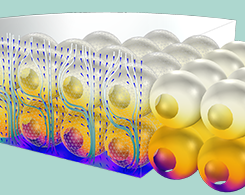
Introduction to Modeling Surface Reactions in COMSOL Multiphysics®
Bioengineers and electrochemists will appreciate this detailed introduction to modeling surface reactions with the COMSOL® software.
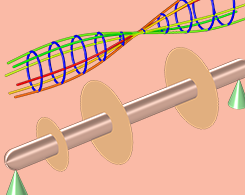
How to Perform Various Rotor Analyses in the COMSOL® Software
Check out all of the different types of rotor analyses you can perform using the specialized features in the Rotordynamics Module, an add-on to COMSOL Multiphysics®.
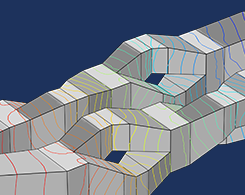
How to Export Images Automatically After Solving Your Model
Did you know that COMSOL Multiphysics® can automatically export results images and animations after your model solves? Here’s a step-by-step guide for setting up the process.
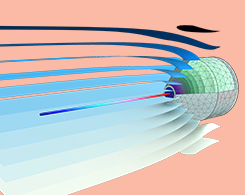
Analyzing a Probe Tube Microphone Design with Acoustics Simulation
Probe tube microphones are an important component in hearing aids. Learn about how you can use acoustics modeling to analyze the design and predict the performance of these devices.
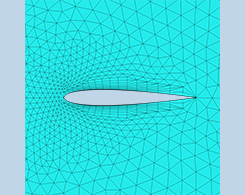
Which Turbulence Model Should I Choose for My CFD Application?
Modeling turbulence in the COMSOL® software? Find out which turbulence model you should use, depending on your CFD modeling scenario.
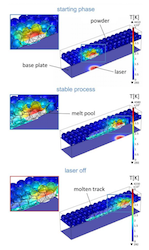
Analyzing Laser Beam-Matter Interaction in Selective Laser Melting
Selective laser melting is a common and important process in many types of manufacturing. You can model the interaction between the laser beam and matter for a closer look at this process.
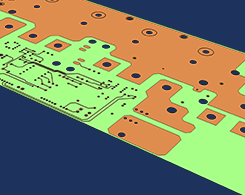
How to Import an ECAD Geometry for Printed Circuit Board Design
We demonstrate how to import an ECAD geometry into COMSOL Multiphysics® for the design of a printed circuit board. The example features an actual PCB geometry from a company in the industry.
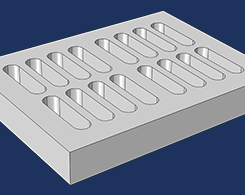
Creating a Model Geometry in COMSOL Multiphysics®
Learn how to create a geometry directly within COMSOL Multiphysics® using geometric primitives and geometry operations. Then, watch an introductory video series to see each step in detail.
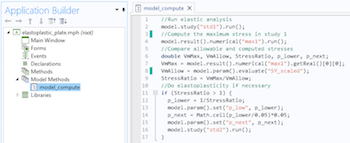
How to Automate Physics Choices and Studies Using Model Methods
The ability to create and use methods in COMSOL Multiphysics® is useful for automating your modeling processes, such as choosing physics and studies.
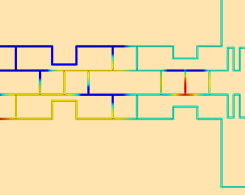
Designing a Butler Matrix Beamforming Network with RF Modeling
Check out a tutorial model with implications in developing the 5G mobile network: Butler matrix beamforming networks, which can be combined with phased array antennas for wireless communication.

Why Should I Use Automatic Wall Treatment for My CFD Modeling?
The automatic wall treatment functionality enables you to use low Reynolds number models for a wider range of CFD problems, but there are some factors to consider before implementing the feature.

How to Use Model Methods to Accelerate Your COMSOL® Workflow
Methods aren’t just for enhancing simulation applications built in the Application Builder. In fact, you can create methods to streamline and automate repetitive modeling operations.
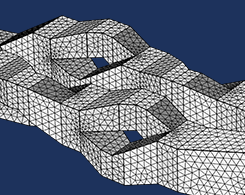
How to Use Job Sequences to Save Data After Solving Your Model
A useful but little-known modeling trick in COMSOL Multiphysics®: You can use job sequences to save data, including plot groups, results, and images, after solving a model.
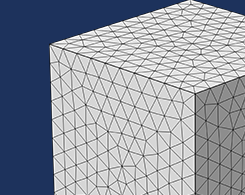
How to Generate Randomized Inhomogeneous Material Data
Did you know there is a way to take randomized material data with specified statistical properties determined by a spectral density distribution and use it to generate and visualize results?
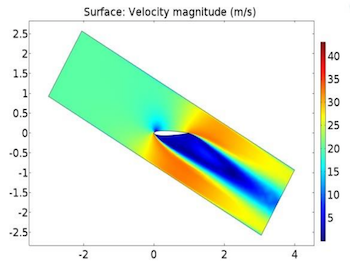
Improving Vertical-Axis Wind Turbine Efficiency with CFD Simulation
Vertical-axis wind turbines are easier to install and maintain than horizontal-axis devices, but they also have low peak efficiencies and struggle with starting torque. Enter CFD simulation.
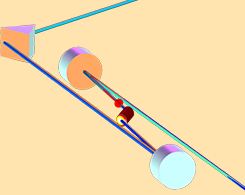
How to Analyze Laser Cavity Stability with Multiphysics Ray Tracing
If you’re looking for an in-depth example of multiphysics ray tracing, then check out this blog post about analyzing and predicting laser cavity stability in the COMSOL® software.

How to Model Heat and Moisture Transport in Porous Media with COMSOL®
Modeling the transport of heat and moisture in porous media, like building envelopes and other construction materials, is a simple process with a predefined Heat and Moisture Transport interface.
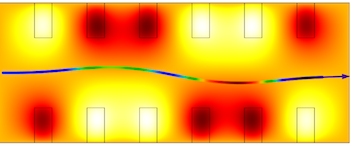
How Does the Choice of Ray-Tracing Algorithm Affect the Solution?
When performing a high-frequency optics simulation, do you use a sequential, nonsequential, or exact ray tracing algorithm? Learn how to choose to make the most of your solution.
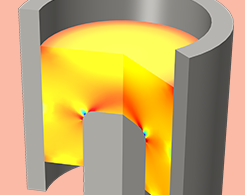
Simulating Powder Compaction with Porous Plasticity Models
Powder compaction is an important and popular technique in many manufacturing industries. You can use porous plasticity models to analyze and improve the powder compaction process.
